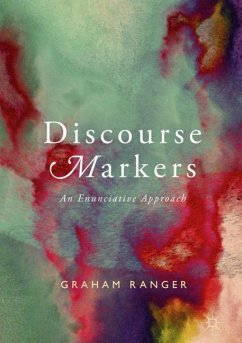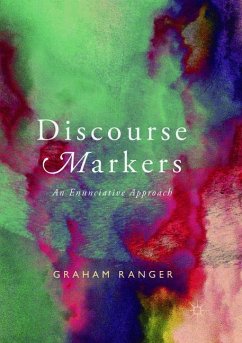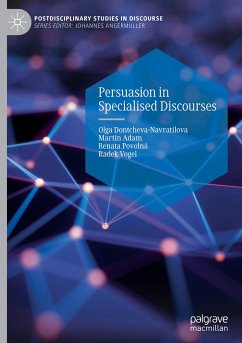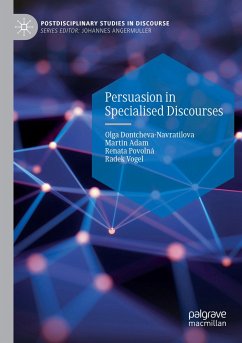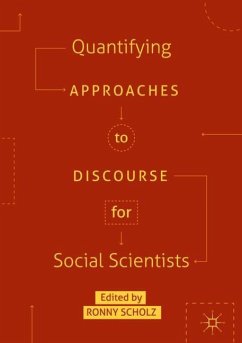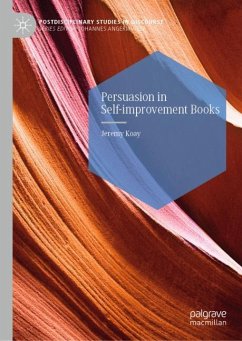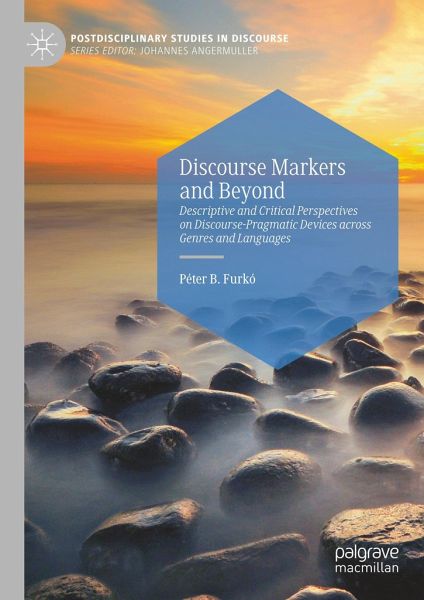
Discourse Markers and Beyond
Descriptive and Critical Perspectives on Discourse-Pragmatic Devices across Genres and Languages
Versandkostenfrei!
Versandfertig in 6-10 Tagen
83,99 €
inkl. MwSt.
Weitere Ausgaben:

PAYBACK Punkte
42 °P sammeln!
This book explores the use of discourse markers - lexical items where drawing a distinction between propositional and non-propositional, syntactically-semantically integrated and discourse-pragmatic uses is especially relevant. Using a combination of qualitative and quantitative methodologies, descriptive and critical (CDA) perspectives, and manual annotation and automatized analyses, the author argues that Discourse Markers (DMs) cannot be effectively studied in isolation, but must instead be contextualised with reference to other discourse-pragmatic devices and their language and genre backg...
This book explores the use of discourse markers - lexical items where drawing a distinction between propositional and non-propositional, syntactically-semantically integrated and discourse-pragmatic uses is especially relevant. Using a combination of qualitative and quantitative methodologies, descriptive and critical (CDA) perspectives, and manual annotation and automatized analyses, the author argues that Discourse Markers (DMs) cannot be effectively studied in isolation, but must instead be contextualised with reference to other discourse-pragmatic devices and their language and genre backgrounds. This book will be of interest to students and academics working in the fields of DM research and critical discourse studies, and will also appeal to scholars working in areas such as genre studies, second language acquisition (SLA), literary analysis, contemporary cinematography, Tolkien scholarship, and Bible studies.





